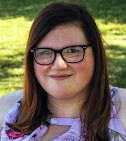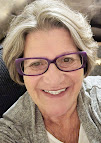Professor and director, Institute for Rural Journalism and Community Issues, University of Kentucky
"People want local news." That's what I said after moderating one of the most interesting sessions at the National Summit on Journalism in Rural America, a panel of four women who started newsrooms and are finding success in markets no longer well served by chain-owned daily newspapers.
Two have for-profit papers: Lynne Campbell of The Community News in Macomb, Ill., and Debra Tobin of the Logan-Hocking Times in Logan, Ohio. Two have non-profit, digital-only news outlets: Jennifer P. Brown of the Hoptown Chronicle in Hopkinsville, Ky., and Nicole DeCriscio Bowe of The Owen News in Spencer, Ind., which is just getting started but has key community support.
The for-profits are in purely rural areas, and the nonprofits are in counties that lie within metropolitan areas (Bloomington, Ind., and Clarksville, Tenn.) but are still rural in character; Hopkinsville has 31,000 people and Spencer has 2,200 in a county of 21,000.
 |
| Nicole DeCriscio Bowe |
The main local information source became Facebook pages that stole or plagiarized content, and the local Chamber of Commerce reached out to DeCriscio Bowe to see what it would cost to start an online newspaper. She had already been talking with some other locals about a nonprofit publication, and the local community foundation committed $10,000 to the project “before we were even a nonprofit entity.” The foundation then secured a $10,000 matching grant from the John S. and James L. Knight Foundation.
So far, The Owen News is posting news only on Facebook, but its website has a survey to test readers' willingness to support it. “My board has been very specific, that they don't want to charge our subscribers. We want to have it strictly donation-based, and based in advertising,” DeCriscio Bowe said. “We have a separate journalism Advisory Board, consisting of journalists across the nation, to help guide us in editorial policy and style guides and all of the nitty, gritty journalism tasks. . . . We want mandatory training for our correspondents, so that we never fall into a position where our content can't be trusted.”
 |
| Jennifer P. Brown |
“Immediately the response was very positive,” she said. “People wanted more local stories, and . . . within six months. We had our 501(c)(3) approved, we had a website, had a launch party at the brewery in downtown Hopkinsville. and we got going. Our vision was to advance the public good, promote a respectful dialogue among citizens, and raise awareness of business, arts, culture, and history that is unique to Hopkinsville. What I really wanted to do was give people stories where I could sort of flex my institutional knowledge of the community and provide context and background that maybe they felt like they weren't getting in other places.”
Brown said she worked for two years without a salary “while we focused on the journalism, improving what we could do before we got really serious about raising money. We were raising money, but not enough to pay anyone a salary.” Now she does pay herself, and a part-time helper. She participates in the NewsMatch program of the Institute for Nonprofit News, and says “being a member of INN is crucial for us. We wouldn't have much financing without INN.”
Brown said she has 25,000 average monthly unique visitors, up 40 percent from last year; 1,550 daily newsletter subscribers, up 47% from last year, with an open rate of 55% to 60%; and about 4,700 Facebook followers, up 41%; and we 256 donors, up 24%. “Our daily newsletters are really important,” she said. “A newsletter comes out late, I usually hear from people. They want to know what happened. Where is it? And I take that as a good sign.”
The New Era, bought a few years ago by Paxton Media Group, has no office open to the public but still has local coverage. Brown said, “I think it's important to know that I've learned that it really doesn't work for me to try to compete against the other local media. It's a lot of wasted energy. We do have the local newspaper still. unfortunately, they have reduced their publication days, and the newsroom is very small. It doesn't look anything like the newspaper that I worked in. We also, though, have two commercial radio stations that have news operations,” and the Chronicle partners with WKMS at Murray State University, which “got most of the other public radio stations in Kentucky to sign on to that agreement. It gave us an immediate sort of wire service, so that we could help Hopkinsville readers know more about what was going on with the state government. . . . People in Hopkinsville quite often know more about what's going on with Tennessee state government than they do Kentucky state government because we're in their media market.”
 |
| Lynne Campbell |
After buying and improving a paper in a bedroom community of Peoria, then starting one for a town just outside Galesburg, home of another GateHouse paper that was no longer covering it, people in Macomb kept asking when she was going to start a paper there against another Gatehouse (now Gannett) ghost. She sold her interests in her other papers to her partner, and “went all in on the Community News,” she said.
It started on a copy machine, distributed free three times a week at 40 locations, and “was full of brief bits of local news,” such as events, police logs and death notices, but not full obituaries. “It was a quick read, and we had it out before lunch hour, so people would grab them at the restaurants and read them while they're waiting on their food.”
When the pandemic hit, Campbell said, “We didn't have events to write about. So we turned to partnering with the health department, the hospital, all of the government agencies, the mayors in all the cities, and we formed a great relationship between everybody, and we became the source for information during the shutdown . . . and our advertisers stayed with us, except for the ones that were shut down. All the advertisers stayed with us because they knew people were going there to read everything, and they won. And so we didn't lose that much revenue.”
The paper kept growing, and Campbell turned the Friday edition into subscription-only in May 2022. By that fall, she had almost 1,000 subscribers, and this year she made the Monday edition part of the subscription paper, shifted it to Tuesdays, and kept one free edition, called the Midweek, “so that everybody could get a little bit of the local news.”
Campbell said the Community News is billing $40,000 a month, much of it in legal advertising, since the Gannett paper, now called the McDonald County Voice, “is down to less than a hundred subscribers” and no longer has a storefront. The county has 27,000 residents, most in Macomb.
Logan, Ohio, is a town of 7,200 in a county of 46,000. Tobin worked for Adams Publishing Group for many years, last at the Logan Daily News: “About 20 of us that walked out one by one over the course of three months,” and eventually she and six of them “got together and started the Logan-Hocking Times,” charging $7.99 a month for digital subscriptions. “Within six months we had 700. We're over a thousand. That wasn't good enough for me, though, because I wanted to do something else, because a lot of people don't have computers in my hometown. It's a very small, not good access to broadband or anything. So I decided to do a print newspaper,” distributed free on Fridays, the day after the digital edition, and is funded by advertisers who sponsor pages.
Tobin has a part-time reporter, a part-time sports reporter, a full-time paginator and full-time graphics person, and two advertising staffers who work on commission. She’s on Social Security and takes no salary. “We were told that we were nothing but a pipe dream. And here we are almost three years later . . .and we're growing so.” Earlier, she said, We all decided to do this because the company that we worked for did not care about the community. . . . We all grew up in Logan. We all went to school in Logan. We love that we're vested in that county.”
Tobin said her experience can be replicated: “I encourage people to try it . . . if you have a background in journalism, and you are thinking about starting a paper. It may seem scary at first, but if I can do it, I know anybody can do it.”
When the pandemic hit, Campbell said, “We didn't have events to write about. So we turned to partnering with the health department, the hospital, all of the government agencies, the mayors in all the cities, and we formed a great relationship between everybody, and we became the source for information during the shutdown . . . and our advertisers stayed with us, except for the ones that were shut down. All the advertisers stayed with us because they knew people were going there to read everything, and they won. And so we didn't lose that much revenue.”
The paper kept growing, and Campbell turned the Friday edition into subscription-only in May 2022. By that fall, she had almost 1,000 subscribers, and this year she made the Monday edition part of the subscription paper, shifted it to Tuesdays, and kept one free edition, called the Midweek, “so that everybody could get a little bit of the local news.”
Campbell said the Community News is billing $40,000 a month, much of it in legal advertising, since the Gannett paper, now called the McDonald County Voice, “is down to less than a hundred subscribers” and no longer has a storefront. The county has 27,000 residents, most in Macomb.
 |
| Debra Tobin |
Tobin has a part-time reporter, a part-time sports reporter, a full-time paginator and full-time graphics person, and two advertising staffers who work on commission. She’s on Social Security and takes no salary. “We were told that we were nothing but a pipe dream. And here we are almost three years later . . .and we're growing so.” Earlier, she said, We all decided to do this because the company that we worked for did not care about the community. . . . We all grew up in Logan. We all went to school in Logan. We love that we're vested in that county.”
Tobin said her experience can be replicated: “I encourage people to try it . . . if you have a background in journalism, and you are thinking about starting a paper. It may seem scary at first, but if I can do it, I know anybody can do it.”
For video of the session (it's the last one on this video), click here; for audio, here.
No comments:
Post a Comment